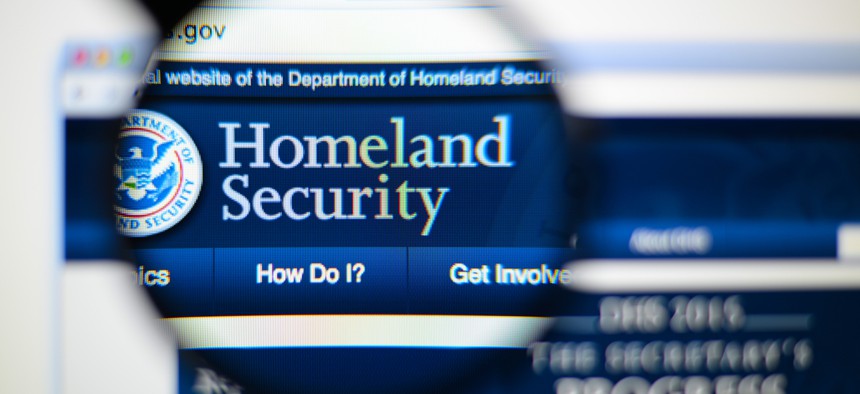Shutdown Could Damage Homeland Security for ‘Months, if Not Years,’ Says Ex-DHS Chief

Gil C/Shutterstock
Efforts to strengthen the country’s cyber posture have come to a halt, and if a crisis were to strike, there wouldn’t be enough people to respond, former agency officials said.
Former Homeland Security Department officials on Thursday warned the current government shutdown will have a “long-term, extremely detrimental effect” on country’s cyber and national security posture.
While federal employees are undoubtedly feeling the greatest immediate impacts of the shutdown, the government’s efforts to combat cyber threats, respond to emergencies and fight terrorism will continue to suffer long after agencies reopen their doors, officials said during a panel hosted by House Homeland Security Committee Chair Bennie Thompson, D-Miss.
“From a security standpoint, we are letting our guard down,” former Homeland Security Secretary Jeh Johnson said Thursday. “If the shutdown ended tomorrow, I fear the damage already done to our security will [last] months if not years.”
As feds miss a second paycheck on Friday, officials said Homeland Security and other shuttered agencies could face an exodus of employees pursuing private sector jobs. And because the shutdown could make it increasingly difficult to recruit people to civil service, filling those gaps in the workforce could take years, they said.
But beyond general recruitment and retention troubles, the shutdown is also causing Homeland Security to lose ground in the fight against emerging threats in cyberspace.
Efforts to defend against hacking, misinformation and other online dangers “have been significantly reduced, if not come to a halt” because such threats aren’t considered “imminent,” said the department’s former Assistant Secretary for Infrastructure Protection Caitlin Durkovich. Though she said she remains confident in the agency’s ability to fight day-to-day attacks, “the strategic risks to our nation continue to grow” each day.
The shutdown halted the agency’s Continuous Diagnostics and Mitigation program, Durkovich said, delaying government’s adoption of the latest cybersecurity tools. It could also potentially stunt the growth of the newly dubbed Cybersecurity and Infrastructure Security Agency, she said.
CISA—which is operating at less than 57 percent capacity during the shutdown—isn’t developing new capabilities, and because its parent agency is largely shuttered, other departments could start to encroach on its jurisdiction, Durkovich said.
The shutdown has also hampered the agency’s ability to defend against threats in the physical world, said Tim Manning, the Federal Emergency Management Administration’s former deputy administrator for protection and national preparedness.
More so than most civilian agencies, Homeland Security’s work centers on proactively preparing for crises and quickly responding when they occur. If the country were to face a natural disaster or terrorist attack right now, Manning said there’d be no way to deploy a sufficient amount of responders in time.
“I fear that we are rolling the dice,” he said. “We’ll be lucky to get everybody back on the job without a crisis striking that we’re not able to respond to.”
NEXT STORY: Patriot Act updates lurk for Congress






